Whether you are looking for your first faculty position or a different one, a job search is a full-time job in itself if done correctly. Opportunities within academia have to be actively pursued on a daily basis.
Why? The answer is simple. Supply and demand!
Universities are awarding more graduate degrees than the market can handle. In 1957, U.S. institutions awarded a total of 8,611 doctorate degrees. In 2012, they awarded a whopping 51,008. That’s a 492% increase within half a decade.
We have seen a 64% percent increase in doctoral degree program completers within the last thirty years alone. The competition in the job market is extremely tough, and you, as a job seeker, need to understand that a college degree, even a PhD from a respected university, does not equal a guaranteed job offer any more. There are simply more qualified job seekers within the academic market than full-time positions.
Of course, there are always exceptions to the rule. While some fields are saturated job applicants, there are a few emerging fields with ample opportunities. However, if you are seeking a job opportunity within academia, realize that there’s currently a 40% job shortage within the academic market.
This is why you need to use every tool available at your disposal when conducting your job search. The following list will hopefully get you started on your career search and provide you with a way to gauge the job market, network, and promote yourself to prospective employers.
Here are the Top 5 higher education job sites:
#5. LinkedIn
While LinkedIn is known for being a social media network for professionals, it is among the top 10 most visited websites in the U.S. with a built-in job posting and search feature. Members are able to customize their search for positions by:
- keywords
- location
- company size
- industry
The profile feature is a native resume/CV builder that makes your professional background searchable and viewable by practically anyone. LinkedIn utilizes keywords that appear in your profile to recommend job openings that may be of interest to you or relevant to your background.
#4. indeed
While indeed is not strictly a higher education job search engine, they pride themselves for being the largest job site in the world, and many higher education institutions have been using them to list job openings and recruit candidates. The website’s interface is quite plain and simple, and it is akin to the minimalist design that Google has opted for, but the listings are quite comprehensive. Some of the features indeed provides include:
- simple and advanced search by keyword and location. The caveat however is that the location search is limited to a geographic location up 100 miles from a specific zip code. So, you have to select a specific location and select between a search radius of 0 to 100 miles from the location you selected. This is a bit of a nuisance for people wanting to do an unrestricted search. You can expand your search and search for jobs by state, but you need to scroll to the bottom of the website and click on “Browse Jobs” located in the footer, which will then provide you with a listing of states and job categories to choose from.
- posting a resume or CV.
- search and viewing other resumes and CVs. This is a great tool for recruiters.
indeed does not provide a breakdown of their statistics; however, it is ranked in the top 80 most visited websites in the U.S.
#3. InsideHigherEd
Inside Higher Ed is not a stand alone job search engine; it’s an online resource for higher education news, opinions, as well as a job board. The website site interface is a bit dated, and the search feature is not advanced or highly customizable, but the remaining features offered are relatively comparable to those of other job search engines. Its features include:
- searching dual careers simultaneously
- receiving job alerts
- saving job searches
- posting a resume or CV
The site currently has a listing of nearly 18,000 job openings including positions for: faculty, researchers, administrators, executives, and non-academic jobs. 99% of these jobs are within the US, and 1% are international positions.
#2. Chroniclevitae
This is the new face of the former job site for the highly respected The Chronicle of Higher Education. The new website offers several great features for academic job seekers such as:
- searching by: position type, category, location, permanency, and more.
- dossier service which allows you to store career related documents like a CV, resume, and recommendation letters. You can also request letters of recommendation directly from this feature.
- make your CV and resume accessible to prospective employers.
- join relevant groups.
- syllabi database, which is a new feature that allows faculty to share and exchange syllabi.
The site currently has a listing of nearly 10,000 job openings including positions for faculty, researchers, administrators, executives, and non-academic jobs. 94.5% of these jobs are within the US alone, and 5.5% are international positions.
#1. HigherEdJobs
Higher Ed Jobs is by far the largest stand alone job search engine dedicated to jobs within academia. The site is a bit dated, but their jobs search feature is quite advanced and allows you to filter jobs using multiple criteria. In addition to the regular job search features, Higher Ed Jobs provides a wealth of other useful tools and resources such as: Resume/CV tips, interviews with higher education experts, employment and trend reports, webinars, and salary data.
The site currently has a listing of over 32,000 job openings including positions from over 2,300 institutions from around the world.
Regardless of which job site you choose to focus on, remember that finding a full-time position can take some-time and may require you to make some major changes in your life, but if this is what you truly want to do,
- pursue it with passion.
- be persistent AND consistent in your search.
- keep your options open. You may be presented with an opportunity that you’d never considered before. It never hurts to explore new ideas.
Well, I hope you found this post useful. If you did, I’d be grateful if you’d help spread the word by sharing this with friends or colleagues on LinkedIn, Facebook, Twitter, Reddit, or any other social media platform you use.




